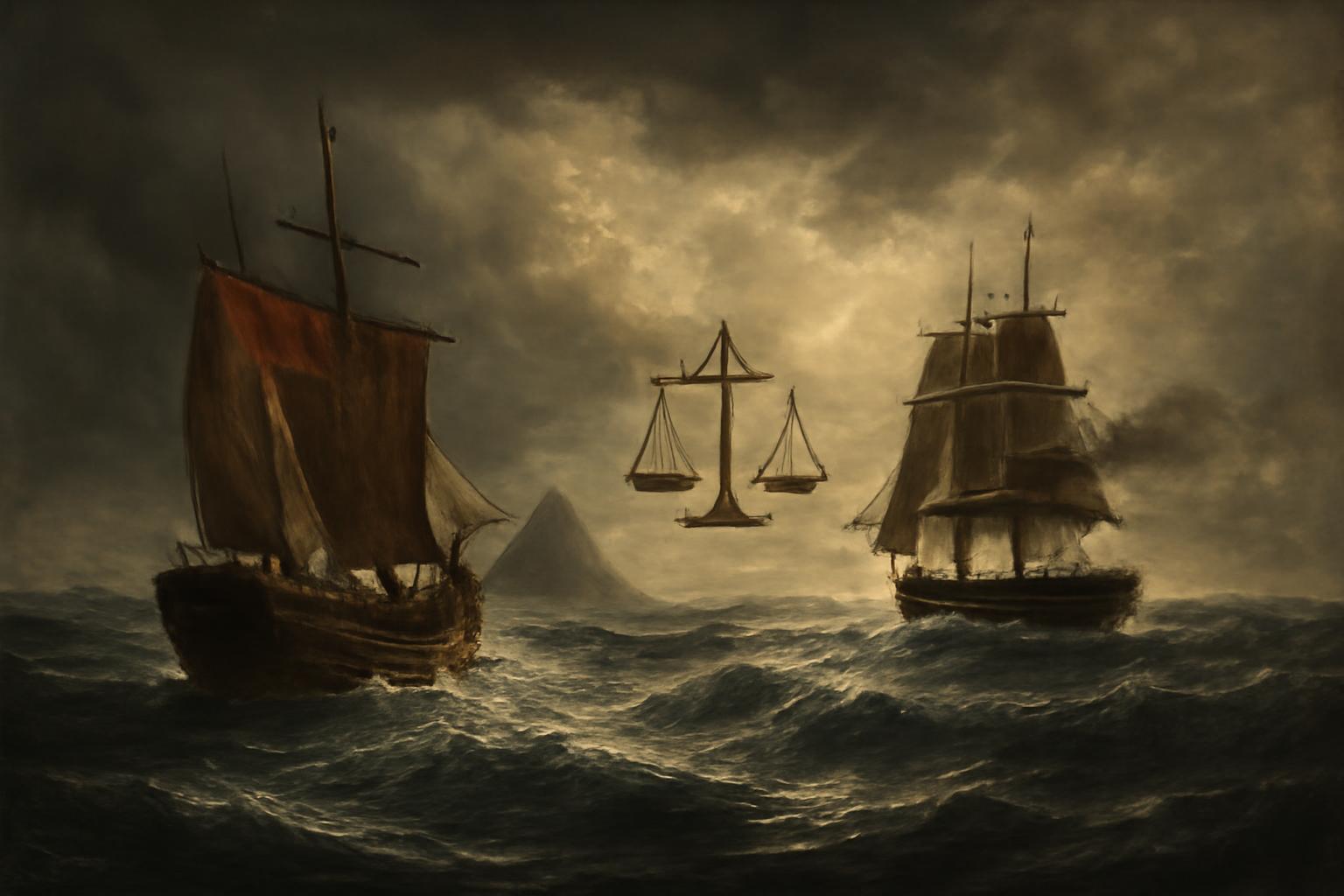On a blue theatre where continents tilt their banners and the compass still pretends to be a staff of moral order, the sea reasserts its ancient prerogative: to measure power by waves and will. A clash of steel against steel, a Philippine patrol facing the long shadow of a Chinese coast guard, the spray and uproar of a high-stakes encounter; later, an assertion of command, a Chinese warship, it is said, forcing a U.S. destroyer to withdraw near the contested Scarborough Shoal. Beijing proclaims near-total sovereignty over waters that others deem a shared sea; Washington answers with the tired recitation that freedom of navigation must endure in international waters. The Scarborough Shoal, a name that rings like a bell in a broken clock, remains a disputed haunt where claims, like banners in a wind-turret, flap and threaten to drift apart. Water cannon rises, pursuit grows reckless, a collision lurks in the frame; the video-recorded clash of smaller and larger vessels bears witness to a choreography of power, whose outcome none can truly predict.
Thus the sea becomes a ledger of rival dreams: sovereignty lauded as an absolute, law as a fragile parchment fluttering in a storm of expediency. We are reminded, as if by Nietzsche’s admonition about the will to power, that strength seeks to inscribe its meaning upon the world, even as the world refuses to stay written. The drama unfolds on the stage of modern statecraft, but the echo is Greek: a chorus of neighboring nations, of fishermen, of fleets, of diplomats, all forewarned that hubris—whether in Beijing’s near-total claim or in the U.S. insistence on a universal right—invites a catastrophe not merely maritime but metaphysical. Greek tragedy would have us recognize the peril: the attempt to fix water, to confine the sea within banners, is the prelude to inexorable consequence. The more we prop up our maps and protocols, the more the sea reclaims its indifferent vastness, and the more the old certainties crumble into fog and memory.
We look upon this with the melancholic eye of a culture already half-inclined to parody its own solemnities. The West proclaims order, then betrays it with clockwork precision; it speaks of freedom while perfuming itself with sovereignty’s perfume. We witness not a drama isolated to the South China Sea, but a symptom: the fatigue of an era that believed itself to be the end of history, yet keeps rewrapping itself in ancient costumes of power. In this we discern Nietzsche’s lament: that the will to power, once crowned, devours its own horizon and leaves behind only a void where meaning once stood. The sea, indifferent to our pretensions, keeps turning, a reminder that every treaty is but a temporary truce between imperious desires.
So let us lament, not merely the clashes and countermoves, but the deeper fracture: a civilization that has forgotten how to concede without vanquishing, how to share without claiming absolute. If there is not, in the memory of classical restraint and the discipline of humility, a rebirth of wisdom to temper the tempests, then the great waters will continue to churn with the accidents of pride until silence itself becomes the only law that remains. And in that silence, history will utter its final verdict: that to govern the sea without listening to the chorus of other minds is to court the tragedy that no navy can avert.
